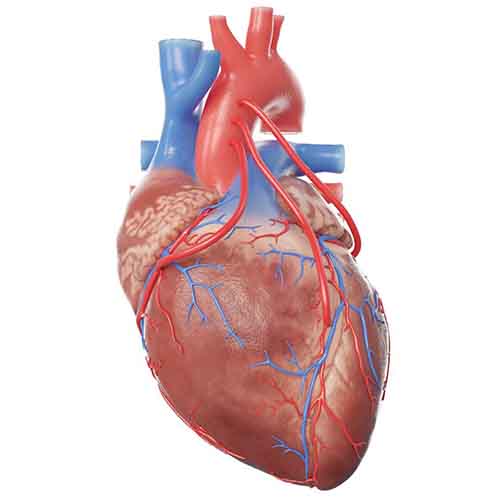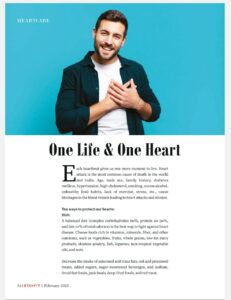What is Cardiac Bypass Surgery?
Within the human body, we have arteries and veins running across. Specific to the heart region, if there is any blockage or obstruction in any of the arteries, then a bypass procedure comes essential. So, this surgery involves removing that obstruction from the artery and restoring the flow of blood to the heart. Using the blood vessels from legs or chest, the blocked artery is bypassed in this operation. Post the surgery, there will be new pathways that are created for oxygen-rich blood for flowing into the heart muscles.
Note that the number of times to take their surgical procedure depends on the total count of blocks in the heart; such as Single, Double, Triple, and Quadruple bypass surgery. Hence, it is advisable to consult any best bypass surgeon in Bangalore before consenting to the treatment plan.
Different Types of Bypass Surgery
Standardly, there are two distinct forms of bypass surgery done on patients and it depends on the type of block or heart disease he or she has:
- On-pump Surgery – A heart-lung machine is used to circulate the blood to the organ, as well as, take the role of respiration in the body.
- Off-pump Surgery – This minimally invasive clinical procedure will be done when the heart is just beating. So, a heart-lung machine is not necessary here.
There are certain pre-conditions for the surgery including a few risk factors and complications too. But no worries as Dr Vithal. D. Bagi is one of the best cardiologists in townas he is the best bypass surgeon in Bangalore.
Heart Bypass Surgery & its Prerequisites
There are 3 to 4 conditions necessary for performing the cardiac bypass surgery and it is solely done to reduce the post-surgery symptoms and medical effects over the body. So, the requirement for this surgery is only when:
- The patient’s artery is severely narrowed and disturbingly obstructs the flow of blood to the heart.
- Other treatment options do not work if an individual has experienced a heart attack or similar medical emergencies.
- When more than 1 coronary arteries are damaged and affect the oxygen and nutrient supply to the body.
- The patient has already performed a stent placement or angioplasty previously but still did not function well.
The surgery might have some adverse effect on the body, triggering medical conditions such as angina, shortness of breath, chest pain, etc. So, do consult with a heart specialist in Bangalore when assessing if the patient is qualified for bypass surgery.
The Associated Risk Factors of Bypass Surgery
As mentioned priorly, there are a few risk factors linked to heart bypass surgery. They include complications such as low-grade fever and chest pain, fatigue, heart rhythm problems (or heart rate more than 120), insomnia, chest wound infection, sudden numbness, reduced appetite, abdominal pain, loss of mental clarity (“fuzzy thinking”), etc. Yet, the level of risk varies depending on what type of surgery is accomplished, plus the complexity in the blockage or obstruction in the heart muscle and artery.
Additionally, when taking up recommendations and consultations from the best cardiologist in Bangalore, every patient needs to convey his or her lifestyle, food habits, and other previous medical conditions to the physician without hesitation.
Preparations Before the Surgical Procedure
The patient is primarily asked to reveal all the drugs and medications that he or she takes, with and without a physician’s prescription; inclusive of natural herbs.
Medications such as ibuprofen (Advil and Motrin), naproxen (Aleve and Naprosyn), aspirin, etc. make it challenging to clot the blood, thus even increase blood loss during surgery. Hence, the patient is asked to stop all these drug usages before 2 weeks to the actual date of surgery.
Only the best bypass surgeon in Bangalore can suggest still what medications can be taken during the time and day of the bypass procedure. It is also vital to inform the doctor if the patient has any of the following:
- Cold.
- Flu.
- Fever.
- Herpes Breakout.
- And any other physical illness.
Note that the patient must also convey the fact if he or she is consuming clopidogrel (Plavix).
On the Day of Bypass Surgery
- Just after midnight, the night before surgery, the patient is asked not to drink or eat anything.
- Sometimes, the doctor might suggest the patient take a chewing gum or breath mint.
- The patient can take important, unavoidable medications only with a small sip of water.
- The doctor may prescribe a disinfecting solution/lotion to apply over the patient’s skin. This is given for reducing the infections during chest lesions.
Here is the Actual Cardiac Bypass Surgery Procedure
The patient will be administered general anesthesia. Following which, a 10-inch incision (i.e. cut) will be made in the middle of the chest region. The Breastbone will be divided and separated a bit for the physician to view the aorta and heart. Then, the great saphenous vein (GSV) will be reached by the physician through a surgical cut in the inside of the leg, between the groin and the ankle.
A graft is used, taken from the internal mammary artery (IMA), a blood vessel in the chest. And there are other types of grafts used in this procedure. For example, the radial artery in one’s wrist. So, 1 end of that graft is sewn to the coronary artery, while the next end is sewn to an opening made in the aorta region.
Cardiac bypass surgery will last around 4 to 6 hours. If it’s an on-pump surgery, the heart-lung machine will be removed. Once the surgery is done and the bypass starts functioning, the patient will be taken to the intensive care unit (ICU).
Postprocedure Care / Recovery Care for Bypass Surgery
The patient will be staying in the hospital premises till the sedation goes off and he or she gains consciousnesses back. Consult to the best bypass surgeon in Bangalore if pain persists at the site of catheter insertion. Based on the threshold of pain, the physician will suggest some pain killers for relief.
Faint, tiredness or weakness, mild chest pain, and/or shortness of breath are some common post-surgery conditions. Talk with your doctor to get better on these. But if bleeding arises at the site of incision, it is vital to take an online consultation with a heart doctor at the earliest possible. And follow-up visits are mandatory for a safer, easier, and better recovery process.
Some Advantages of the Bypass Surgery
First of all, bypass surgery itself reduces the symptoms of any coronary heart disease. It moreover decreases the risk of recurrence with heart attack patients. There is predominantly a lower risk of getting a stroke and related physical disorders. Even the stay within the hospital campus is quite less as compared to many other serious health concerns. And lastly, there is also less need for blood transfusion.
Why Choose Dr Vithal. D. Bagi Heart Centre?
Dr Vithal. D. Bagi is not only the best cardiologist in Bangalore city but also one among the safest cardiologists to achieve success rate with bypass surgery, with more than 98% cases. With his membership in the Cardiovascular Society of India (CSI) and the Association of Physicians of India (API), he is one among the very few heart specialists in Bangalore who holds decades of experience, just in the surgical protocols of bypass surgery to the heart, followed as per the latest medical norms, thus he guarantees the highest safety and quality in the clinical results.
Frequently Asked Questions
1. Is bypass surgery permanent?
Yes, the purpose of bypass surgery is to create a new passage for reassuring blood supply, with nutrients and oxygen to the heart, and hence this is a permanent treatment.
2. Is bypass surgery painful?
Yes, all surgeries have certain pain and discomfort thresholds. However, the patient won’t feel any pain during the procedure as they will be under the effects of general anaesthesia. Post-surgery care is sure to help the patient fight back pain effectively.
3. What is the recovery time from cardiac bypass surgery?
The standard recovery time from cardiac bypass surgery is around 6 to 12 weeks. Yet, the recovery time varies with each patient depending on their age, lifestyle, etc.
4. How long does it take to complete bypass surgery?
The time duration estimated for a bypass surgery will be anywhere between 3 to 6 hours.
5. Is Bypass Surgery a major surgery or minor surgery?
Bypass surgery is major surgery as it involves giving general anesthesia to the patient, making a 10-inch chest incision, and the permanent placement of the artery graft.
6. What precautions should be taken after bypass surgery?
After bypass surgery, the patient should not stand or sit too long in the same position, perform regular exercise, climb steps with the utmost care, and do only light or mild household chores, and not to lift anything heavy (or that strains the muscles).
7. Is there an age limit for heart bypass surgery?
No, there is not a specified age limit for heart bypass surgery but the success rate is higher with middle adults and people below 75 to 80 years.
















